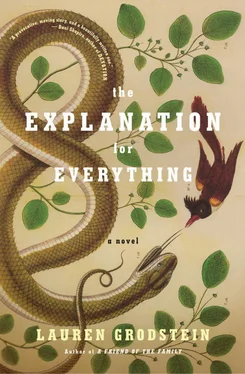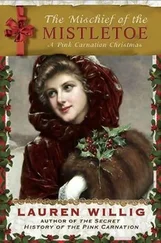Andy himself had always been mild and agreeable—or at least that’s how he considered himself—and his professors had always been mild and incomprehensible. But here, his first day of graduate school (Princeton, fully funded!) was the man who would teach him to be smart and furious, a fully formed adult.
Andy thought back to his twenty-one-year-old self. How long human beings take to grow up. At twenty-one, he was still young enough to mistake Hank Rosenblum for a fully formed adult.
It is night in my cabin in Montauk as I write this, and night as I imagine you reading this, my good reader. I am typing by the light of a 60-watt desk lamp. But when the pain becomes too much, I stop for a few minutes and let my mind wander (the privilege of this life is that my mind can wander far and wide and nobody asks it to come home). I have been thinking tonight of my four ex-wives, three of whom are still alive, each of whom enjoyed a happy and profitable marriage after their brief dalliance with yours truly. They have eleven children between them and two of them still count me as a friend. Those two still look out for me, and think it very sad that I will die alone. I imagine they will sit together at my funeral, shaking their heads at the waste. If I am to have a funeral at all. I still haven’t decided. Who would pay for it? Who, besides these ex-wives, might come?
I would come, Andy thought.
But enough about death! Now onward, friends, to immortality.
The immortality I believe in is the immortality of DNA. Our bodies have been designed and refined over generations, innumerable generations, for one purpose: to protect the dogged DNA inside each one of our cells. That is it.
But if another kind of immortality pleases you, the kind where people live forever, and not just the DNA inside them—well, I have thought about it, and I believe in this type of immortality too. And if you are the sort to take heart from what a deranged old scientist with a long white beard thinks—
Here, again, Andy put down the page. He was just the sort to take heart from what a deranged old scientist might think. He had taken heart twenty years ago and would take heart now. He needed to take heart from someone, and right now Melissa, Pastor Cling, C. S. Lewis—they weren’t working for him. It was too late at night, too close to dawn.
Was Rosenblum going to tell him that life was eternal? Had Rosenblum decided to believe? Give him permission to believe too?
Lou’s ghost, in the corner, smirking. He hated how angry he’d been with her and for how long. A fight came back to him, one of the worst they’d had after the girls were born. She told him that life would be easier if they had more money. Louisa made a crack about leaving him for the rich old grandfather visiting some baby in the NICU. Andy was just then combing through grant applications, and the joke was unkind, and he yelled at her and went out and slammed the door on his way. A week later, she died going out for McDonald’s.
“Louisa?” he said, the first time he’d spoken out loud to her in many months. Could he have her back even if he didn’t take God too? Or was this the only way: to believe in Louisa’s immortality was to unwrap the entire package, the heavens above, the long white dresses, the angels strumming lutes, the Lord our Father, the crabby old bastard who denied Moses a foot in the promised land for reasons mostly of touchiness.
“Lou, I miss you so much.”
In the days after she died, he found himself believing she was everywhere: she was the seagull watching him in the parking lot, the blinking light on the tip of an airplane’s wing. And then her ghost started showing up in the kitchen, the bedroom, while he was alone. She never talked to him, but she had such an expressive face that he could tell what she was thinking: Cool it, Andy. Calm down. The girls will be fine. I’m here. I love you too.
“I miss you so much,” he said again. The ghost was wearing what she always wore, a white T-shirt, a bloody bandage around her wrist. She had a different look on her face now, frank, apologetic. She was sorry she had died. She had wanted to live a long life with him and his girls. She should have buckled her seat belt. She should have been paying more attention to the road. Oliver McGee had been swerving, driving erratically. She had been taking a French fry from the bag. She had been dipping it in ketchup. She had never seen what was coming because she wasn’t paying attention.
The whistle outside of a bird swooping down for her prey.
Andy turned back to the manuscript.
My grandfather died when I was a small boy. He died the way that people used to die, at home, in bed, surrounded by family. (Far preferable, by the way, than our current system of hospitals and machines and expensive and useless procedures, and even if we lived a few years less back then, oh the majesty of that old-fashioned deathbed!) I remember a little about my grandfather: his heavy Yiddish accent, the way he sucked on an eternal supply of butterscotch candies, the nickels he slipped me when my mother wasn’t looking. And I remember too, he had these startling blue eyes, like the Swedish flag. My father’s eyes were the same exact color (it was these eyes, my mother said, that drew her to him at that 1929 meeting of the City College Communists, those eyes that got my own ball rolling) and so were my younger brother Teddy’s. A startling blue, a bottomless blue. (My own eyes are the muddy coffee of my mother’s, for which she apologized.)
Anyway, I remember sitting in that clammy bedroom on the ground floor of my grandparents’ little house in the Bronx, some kids playing stickball outside, my grandmother crying, my littlest sister playing with toys on the floor. My baby cousin wailing in the hallway. The endless wait for what we all knew was coming, and the boredom and excitement of waiting for it. My grandfather’s labored breath. A nurse stationed outside in the living room, and a doctor who came, then left and said he’d come back in a little while. Nobody knew exactly what my grandfather was dying of, some kind of heart condition, I suppose—but he was seventy years old and it had been a good life, and now it was time to say good-bye. That was the way of things back then. I don’t think I’m romanticizing this. My father held the old man’s cramped hand. I had loved my grandfather and felt sad that he was dying but also understood that it wouldn’t do to cry. Only my grandmother could cry, and the baby in the hallway.
Still, it felt sad and unfair that he wouldn’t be with us forever. I would miss his nickels, his butterscotch candies, the gentle way he spoke to me, the way he folded newspapers into caps.
And then, a few seconds before he finally died, my grandfather opened his eyes—he hadn’t opened them for many hours—and although he didn’t say anything, I can remember that moment like it was seared into me. Those Swedish flag eyes. Bottomless blue. My father’s eyes, the very same color. And my brother’s. And because those three were all crammed next to each other in that crowded room, I saw the three of them in the same screen, as it were—the blue of my grandfather’s and father’s and brother’s eyes, the blue that transcends generations. And in that searing moment I understood that my grandfather would die today, yes, but also he would live for as long as my brother did, because my brother carried a part of my grandfather. The color of his eyes. And it seemed to me a fair enough bargain. We cannot live forever ourselves, but a small piece of us can, and will, as long as we keep having children.
It was during that moment I became a Darwinian.
I know that this is not enough for some people, and I am sorry about that. Some people need to believe that it is not just the color of our eyes, not just the texture of our skin, not just the predilection for foreign languages or the long piano fingers that will survive, but that they themselves will somehow live into eternity. Perhaps with their loved ones, and a few favored mementos and pets.
Читать дальше












